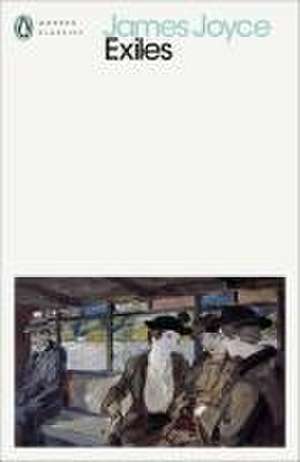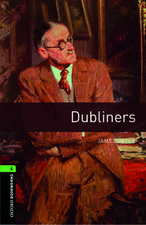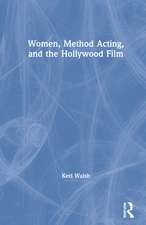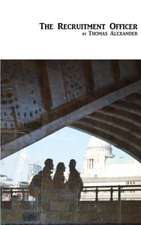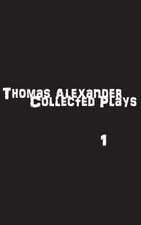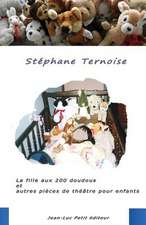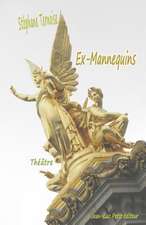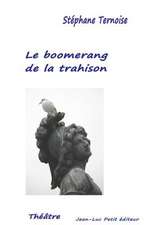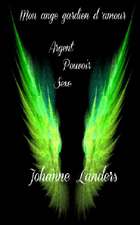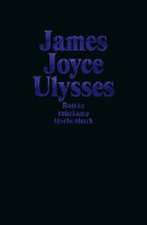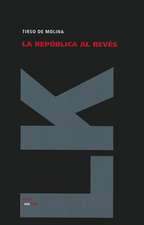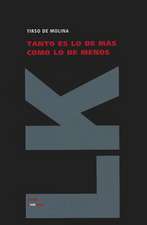Exiles: Penguin Modern Classics
Autor James Joyceen Limba Engleză Paperback – 4 dec 2024
One can also detect hints of Joyce's interest in Nietzsche in Rowan's flawed pursuit of total individual freedom despite the stifling morals of Irish society. Though wrestling with guilt over his own infidelities, Rowan insists on this personal liberty, not only for himself but for his wife as well, who he knows is tempted by his cousin's amorous overtures.
Joyce's decision to express himself in the form of a play no doubt reflects his long admiration of the Norwegian playwright Henrik Ibsen. In the tense dialogue, the largely interior drama focused on the characters' relationships, the undertones of guilt, and the longing for freedom one sees similarities with Ibsen's themes. Also the spare, understated writing style - so unlike Joyce's exuberant, playful, and experimental use of language in his novels - shows the influence of Ibsen's "naked drama" (as Joyce described Ibsen's style in a published review). Above all, Joyce emulated the Scandinavian master in making the central issue of his drama the conflict between individual freedom and a demanding, judgmental society. In Exiles the protagonists struggle with the choice between living in defiance of the rigid conventions of Irish society or exile from their homeland.
Though lesser-known, Exiles, written after Portrait of the Artist as a Young Man and while Joyce was working on Ulysses, provides interesting insights into the development of the creative gifts of a literary genius.
| Toate formatele și edițiile | Preț | Express |
|---|---|---|
| Paperback (6) | 46.84 lei 10-17 zile | +15.47 lei 6-12 zile |
| OUP OXFORD – 10 dec 2020 | 46.84 lei 10-17 zile | +15.47 lei 6-12 zile |
| NICK HERN BOOKS – 31 mar 2007 | 66.32 lei 3-5 săpt. | |
| CREATESPACE – | 74.69 lei 3-5 săpt. | |
| Prometheus Books – 30 apr 2003 | 99.89 lei 3-5 săpt. | |
| – | 69.64 lei 38-45 zile | |
| University Press of Florida – 10 sep 2019 | 208.48 lei 6-8 săpt. | |
| Hardback (2) | 189.92 lei 6-8 săpt. | |
| Bibliotech Press – 12 iul 2023 | 189.92 lei 6-8 săpt. | |
| University Press of Florida – 11 apr 2016 | 453.06 lei 6-8 săpt. |
Din seria Penguin Modern Classics
- 17%
 Preț: 41.41 lei
Preț: 41.41 lei -
 Preț: 82.90 lei
Preț: 82.90 lei -
 Preț: 80.98 lei
Preț: 80.98 lei - 15%
 Preț: 48.87 lei
Preț: 48.87 lei - 17%
 Preț: 52.07 lei
Preț: 52.07 lei - 19%
 Preț: 59.39 lei
Preț: 59.39 lei - 18%
 Preț: 46.05 lei
Preț: 46.05 lei - 17%
 Preț: 52.49 lei
Preț: 52.49 lei -
 Preț: 69.06 lei
Preț: 69.06 lei - 16%
 Preț: 58.66 lei
Preț: 58.66 lei - 17%
 Preț: 51.67 lei
Preț: 51.67 lei -
 Preț: 81.84 lei
Preț: 81.84 lei - 18%
 Preț: 46.25 lei
Preț: 46.25 lei -
 Preț: 97.20 lei
Preț: 97.20 lei - 17%
 Preț: 52.33 lei
Preț: 52.33 lei - 15%
 Preț: 48.90 lei
Preț: 48.90 lei - 16%
 Preț: 53.55 lei
Preț: 53.55 lei - 18%
 Preț: 51.39 lei
Preț: 51.39 lei -
 Preț: 63.28 lei
Preț: 63.28 lei - 16%
 Preț: 53.93 lei
Preț: 53.93 lei - 18%
 Preț: 51.00 lei
Preț: 51.00 lei - 15%
 Preț: 49.40 lei
Preț: 49.40 lei - 15%
 Preț: 55.26 lei
Preț: 55.26 lei - 16%
 Preț: 48.30 lei
Preț: 48.30 lei - 17%
 Preț: 52.10 lei
Preț: 52.10 lei -
 Preț: 81.61 lei
Preț: 81.61 lei - 17%
 Preț: 68.49 lei
Preț: 68.49 lei - 18%
 Preț: 46.25 lei
Preț: 46.25 lei - 18%
 Preț: 46.02 lei
Preț: 46.02 lei - 16%
 Preț: 42.26 lei
Preț: 42.26 lei - 17%
 Preț: 51.66 lei
Preț: 51.66 lei - 16%
 Preț: 48.45 lei
Preț: 48.45 lei - 16%
 Preț: 42.69 lei
Preț: 42.69 lei - 15%
 Preț: 54.63 lei
Preț: 54.63 lei - 18%
 Preț: 46.31 lei
Preț: 46.31 lei - 18%
 Preț: 46.31 lei
Preț: 46.31 lei - 16%
 Preț: 53.59 lei
Preț: 53.59 lei - 16%
 Preț: 53.11 lei
Preț: 53.11 lei -
 Preț: 95.04 lei
Preț: 95.04 lei - 16%
 Preț: 79.93 lei
Preț: 79.93 lei - 18%
 Preț: 46.02 lei
Preț: 46.02 lei - 16%
 Preț: 68.94 lei
Preț: 68.94 lei -
 Preț: 81.35 lei
Preț: 81.35 lei - 17%
 Preț: 51.60 lei
Preț: 51.60 lei - 18%
 Preț: 51.38 lei
Preț: 51.38 lei - 16%
 Preț: 53.36 lei
Preț: 53.36 lei - 18%
 Preț: 50.73 lei
Preț: 50.73 lei - 16%
 Preț: 48.46 lei
Preț: 48.46 lei - 16%
 Preț: 53.37 lei
Preț: 53.37 lei - 17%
 Preț: 52.33 lei
Preț: 52.33 lei
Preț: 52.89 lei
Preț vechi: 63.28 lei
-16% Nou
Puncte Express: 79
Preț estimativ în valută:
10.12€ • 10.57$ • 8.38£
10.12€ • 10.57$ • 8.38£
Disponibilitate incertă
Doresc să fiu notificat când acest titlu va fi disponibil:
Se trimite...
Preluare comenzi: 021 569.72.76
Specificații
ISBN-13: 9780241406014
ISBN-10: 0241406013
Pagini: 160
Dimensiuni: 129 x 198 x 15 mm
Greutate: 0.2 kg
Editura: Penguin Books
Colecția Penguin Classics
Seria Penguin Modern Classics
ISBN-10: 0241406013
Pagini: 160
Dimensiuni: 129 x 198 x 15 mm
Greutate: 0.2 kg
Editura: Penguin Books
Colecția Penguin Classics
Seria Penguin Modern Classics
Descriere
Descriere de la o altă ediție sau format:
'That is my fear. That I stand between her and any moments of life that should be hers...'Set against the backdrop of the Home Rule Crisis of 1912, Exiles is James Joyce's only surviving play. It tells the story of writer Richard Rowan and his common-law wife Bertha, characters drawn from Joyce's own life with Nora Barnacle. After a decade of absence from Dublin, Richard and Bertha have returned home from Rome, still unmarried, with their young son Archie. Richard hopes that he will be greeted as a returning genius and rewarded with a comfortable university position. But this aspiration ends up taking a back seat to the erotic crisis that is unleashed by the couple's return to the place where they first met, and their encounters with two old flames and friends.In this play, Joyce revisits his own agonizing feelings of jealousy that were precipitated by similar trips home to Dublin.In the introduction and notes, Keri Walsh provides a comprehensive look issues of gender, sexuality, and performance as well as considering the nationalist and sectarian contexts of Dublin in 1912, the year of the play's setting.
'That is my fear. That I stand between her and any moments of life that should be hers...'Set against the backdrop of the Home Rule Crisis of 1912, Exiles is James Joyce's only surviving play. It tells the story of writer Richard Rowan and his common-law wife Bertha, characters drawn from Joyce's own life with Nora Barnacle. After a decade of absence from Dublin, Richard and Bertha have returned home from Rome, still unmarried, with their young son Archie. Richard hopes that he will be greeted as a returning genius and rewarded with a comfortable university position. But this aspiration ends up taking a back seat to the erotic crisis that is unleashed by the couple's return to the place where they first met, and their encounters with two old flames and friends.In this play, Joyce revisits his own agonizing feelings of jealousy that were precipitated by similar trips home to Dublin.In the introduction and notes, Keri Walsh provides a comprehensive look issues of gender, sexuality, and performance as well as considering the nationalist and sectarian contexts of Dublin in 1912, the year of the play's setting.
Recenzii
The book is complete with Walsh's useful notes and a well-established text and can safely be recommended to students.
Notă biografică
James Augustine Aloysius Joyce (2 February 1882 - 13 January 1941) was an Irish novelist, short story writer, and poet. He contributed to the modernist avant-garde and is regarded as one of the most influential and important authors of the 20th century. Joyce is best known for Ulysses (1922), a landmark work in which the episodes of Homer's Odyssey are paralleled in a variety of literary styles, most famously stream of consciousness. Other well-known works are the short-story collection Dubliners (1914), and the novels A Portrait of the Artist as a Young Man (1916) and Finnegans Wake (1939). His other writings include three books of poetry, a play, his published letters and occasional journalism.
Joyce was born in 41 Brighton Square, Rathgar, Dublin, into a middle-class family. A brilliant student, he briefly attended the Christian Brothers-run O'Connell School before excelling at the Jesuit schools Clongowes and Belvedere, despite the chaotic family life imposed by his father's alcoholism and unpredictable finances. He went on to attend University College Dublin. In 1904, in his early twenties, Joyce emigrated to continental Europe with his partner (and later wife) Nora Barnacle. They lived in Trieste, Paris, and Zurich.
Although most of his adult life was spent abroad, Joyce's fictional universe centres on Dublin, and is populated largely by characters who closely resemble family members, enemies and friends from his time there. Ulysses in particular is set with precision in the streets and alleyways of the city. Shortly after the publication of Ulysses, he elucidated this preoccupation somewhat, saying, "For myself, I always write about Dublin, because if I can get to the heart of Dublin I can get to the heart of all the cities of the world. In the particular is contained the universal."
